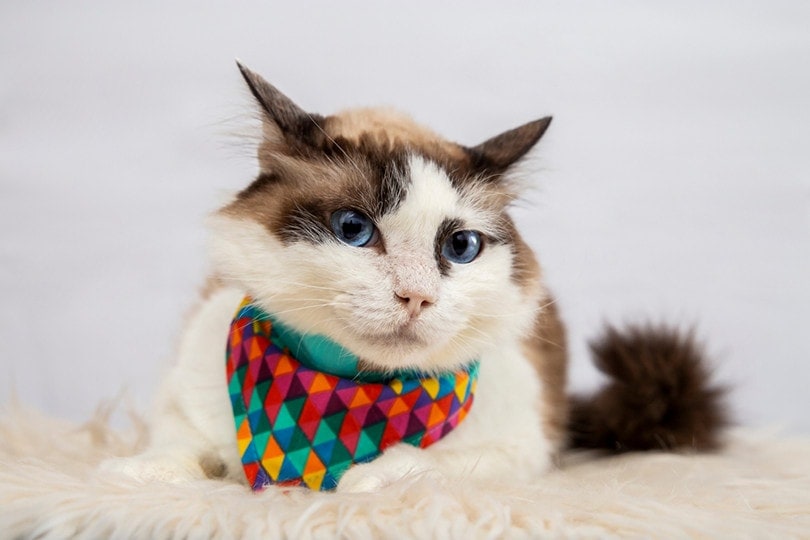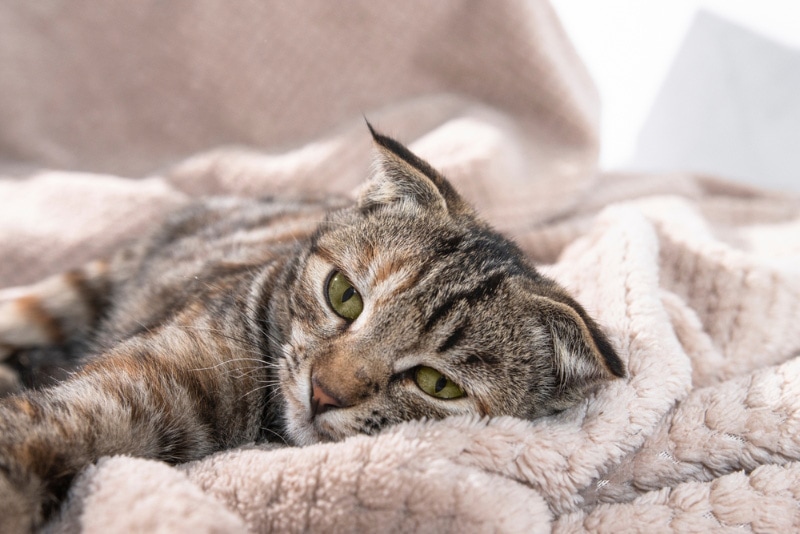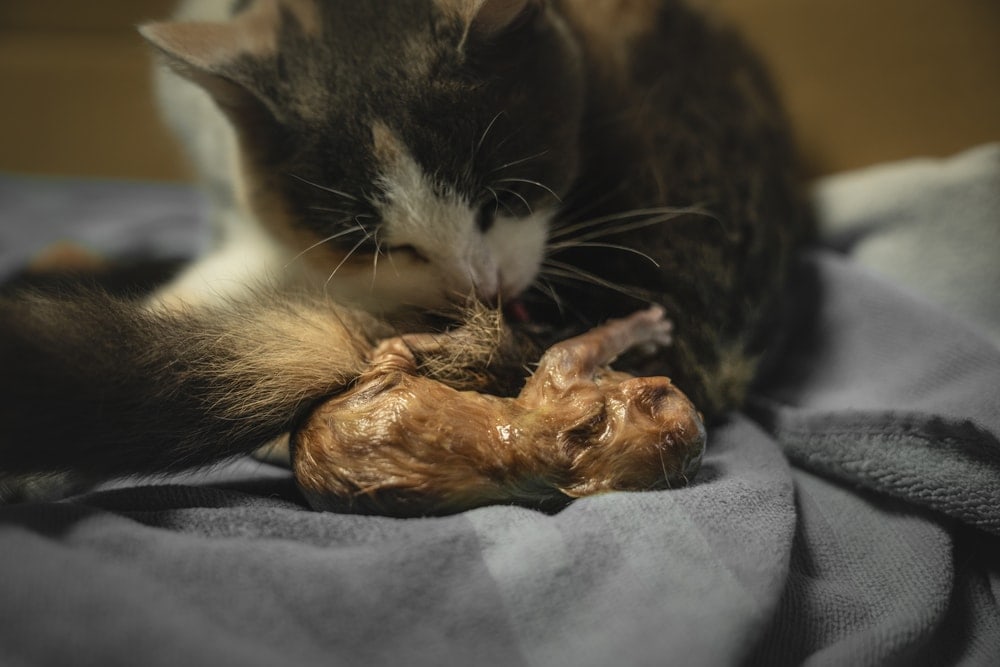Can Cats Eat Cucumber? Vet-Reviewed Nutrition Facts & FAQ

Updated on

Cats may try to nibble on all sorts of things around the house. It’s not uncommon to find nibble marks even on veggies like cucumbers. But, can cats eat cucumbers and be okay? Yes, cats can eat cucumbers without suffering any health effects. Cucumbers are a healthy human snack, and you may occasionally share a thin slice with your kitty, but remove the seeds and peel the skin off first.
Not all human food is safe or appropriate for cats, so it’s very important to be cautious and know which may be offered as a treat and which is toxic. Speak to your vet before offering your cat any new food to make sure it’s safe for them, as it will differ based on your cat’s individual needs and health.
In this article, we get to explore the relationship cats have with cucumbers and learn more about a suitable diet for them.
Nutritional Benefits of Cucumbers for Cats
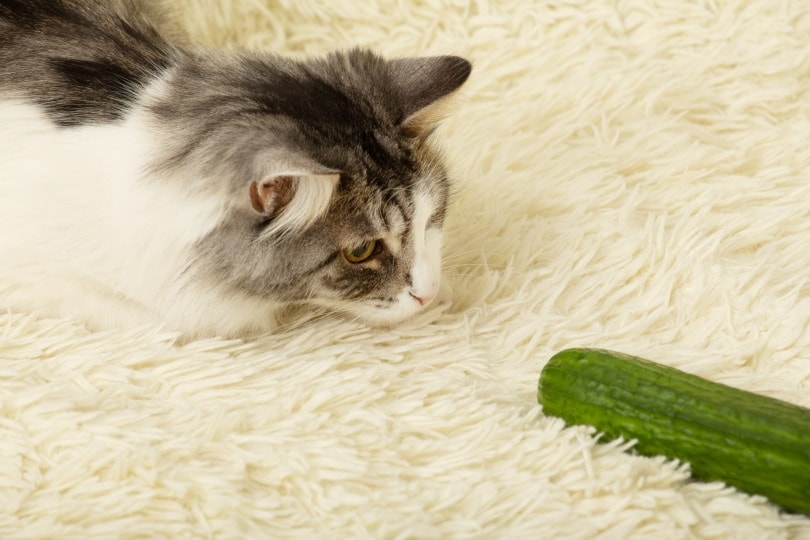
As mentioned above, some cats may show interest in nibbling at cucumbers, but it’s important to stress that they should be fresh. Fresh cucumbers are the safest form of vegetable that cats can eat without any safety concerns. Alternatively, you can lightly steam them.
Cucumbers are full of water, and a slice or two may help your cat remain hydrated, especially in summer when it’s quite hot. Of course, your cat needs fresh water at all times. Be careful not to give too many slices of cucumber, as it may lead to diarrhea.
In addition, cucumbers have some essential vitamins such as Vitamin K. This vitamin plays a crucial role in ensuring adequate blood clotting.
Apart from water and vitamins, cucumbers have molybdenum, which is a mineral. At the moment, there is no available research about the safety of this compound for cats, but we do know that cattle are susceptible to toxicity if the amount in their feed is too high.1 This mineral is not added to pet food, but it may be present in a very small concentration, as plants and animal sources also contain it.
Other vital minerals and electrolytes in cucumbers include copper, magnesium, and potassium. The three play crucial functions in the body.
Cucumbers are also a source of dietary fiber. While cats don’t need as much plant fiber as we do, fiber is still a requirement in their daily diets, and they will need it in small amounts. Wild cats that hunt and eat their prey will also eat the fur, bone, cartilage, tendons, and ligaments and this constitutes intestinal fiber. If your cat is having constipation, some cucumbers can help it have a better bowel movement, but be careful not to give too much, as it may result in diarrhea. Speak to your veterinarian to understand why your cat is constipated so that the underlying cause can be identified and treated, but also to help manage the condition, as constipation is painful and requires veterinary attention.
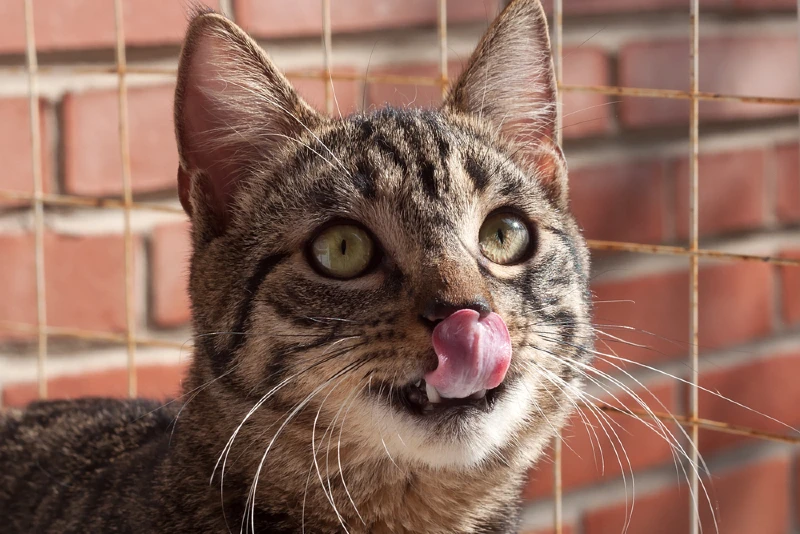
Finally, this is a low-calorie vegetable. It only contains 15 kcal per 100 milligrams, making it quite healthy. If your cat has some weight issues, you can offer them occasional slices of fresh cucumbers. An overweight cat is predisposed to many health issues, such as urinary, heart, and joint problems.
Based on many of these health benefits in humans, many of which are presumed rather than proven by science, you may think cucumbers should be added to your cat’s regular diet. Not quite. Cucumbers can be offered to cats only in small amounts and periodically. For anything else, you need to consult with your vet.
The amount of cucumbers that is appropriate and considered safe for cats is unlikely to provide them with any significant health benefits, and their complete food is their one and only source of nutrients. There is no available research or evidence to say cats need cucumbers in their diets, as they are obligate carnivores and their diet is based on animal protein.
What Is the Safest Way to Feed My Cat Cucumbers?
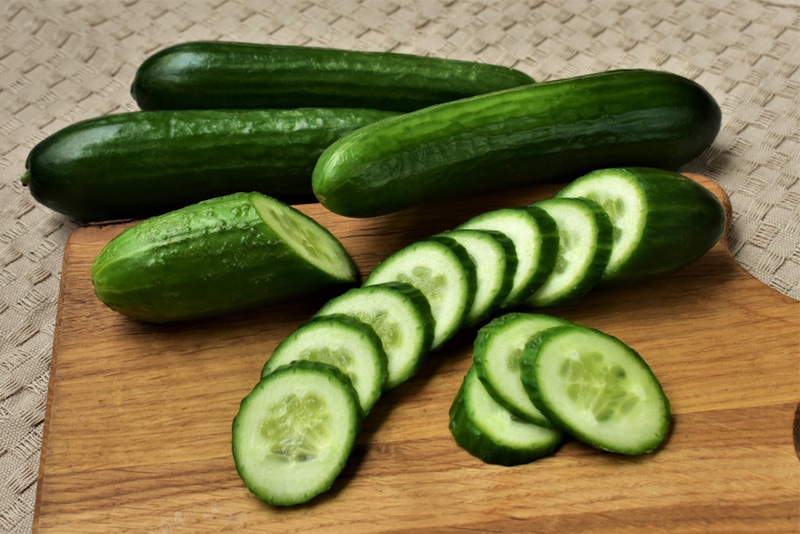
As stated above, cucumbers are loaded with plenty of vitamins and minerals and are a great source of water. But, what is the safest way to feed cats cucumbers?
Well, first, it’s best to understand that this should be a kind of treat. You shouldn’t feed your cats loads of cucumber slices in one sitting. Give them only a slice or two to ensure they don’t experience any adverse effects.
Too much cucumber can lead to excess gas, vomiting, and cases of diarrhea for your cat. Therefore, it’s best to start by peeling the skin of the cucumber then cutting it into small thin slices. The skin may contain some harmful chemicals and is best discarded, as it’s also quite chewy and hard to digest. Remove the seeds, as they may be a choking hazard for cats and, again, aren’t digestible.
Once the slices are ready, take one or two and feed to your cat. You can keep the rest to give them as a treat later. Remember, only feed them fresh cucumber. It means you should avoid any pickled cucumbers, which can make your cat sick and contain various potentially harmful additives.
Other Vegetables and Fruits That You Can Feed Cats
Some human food may be good for cats as an occasional treat. Speak to your vet first if you are considering giving your cat any human food. Always ensure you feed them in moderation. Cats can do well with certain vegetables and fruits, while others may be harmful, give them an upset stomach, or be directly toxic for them.
Examples of safe vegetables for cat’s occasional snacks include:
1. Pumpkin/Squash
Freshly cooked pumpkin or squash is quite good for your cat. Plain pumpkin or squash has loads of water that your cat needs. In addition, it’s a natural source of fiber that aids in digestion and offers relief from constipation, and it may help prevent hairball formation and keep a healthy gut microbiome.
2. Peas
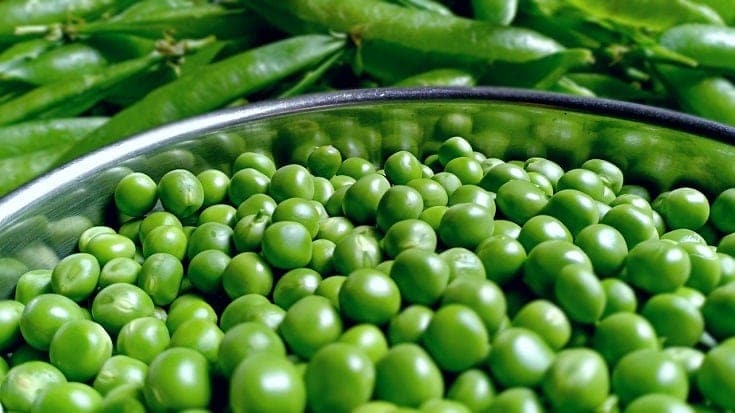
Cats can safely eat freshly cooked peas without any call for concern. Peas have loads of benefits for your feline friends since they are a high source of fiber, alongside other micronutrients. Do not offer canned peas due to all the additives, and remove peas from the pods, as they may be a choking hazard.
3. Carrots
Yes, cats can even eat carrots. A few pieces of cooked soft carrot can make excellent treats throughout the day. Carrots are a rich source of fiber and many other nutrients, but as in most human treats, such as vegetables, the benefits cats reap are actually quite limited. And too much fiber can lead to a digestive upset.
4. Broccoli
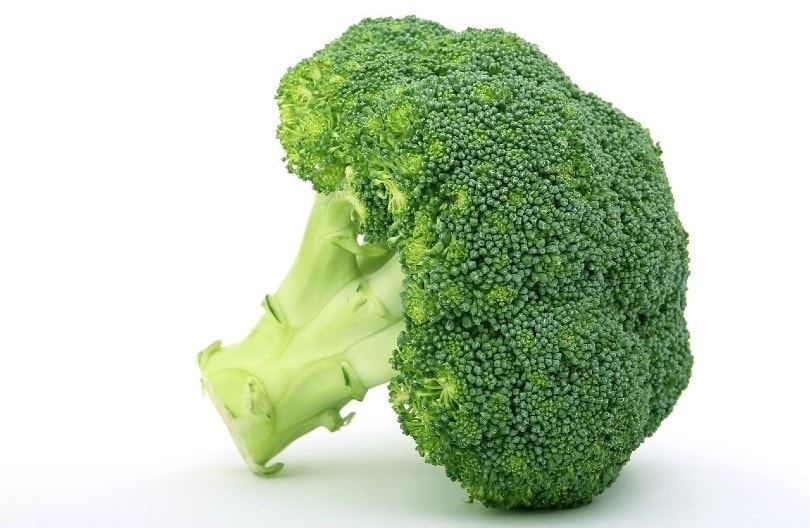
Broccoli is as good for cats as it is for you and your family. Cats can safely eat this healthy vegetable at any age, provided it’s fresh. Therefore, you can feed your cat a little freshly steamed broccoli. It contains loads of crucial antioxidants that tackle inflammation and are low in calories.
5. Spinach
Another leafy green that some cats can eat is spinach. Spinach has loads of vitamins. But, a word of caution is never to feed spinach to cats with urinary or kidney issues before speaking to a vet, as spinach is rich in calcium and oxalate.
Fruits, Vegetables, and Other Human Foods Harmful to Cats
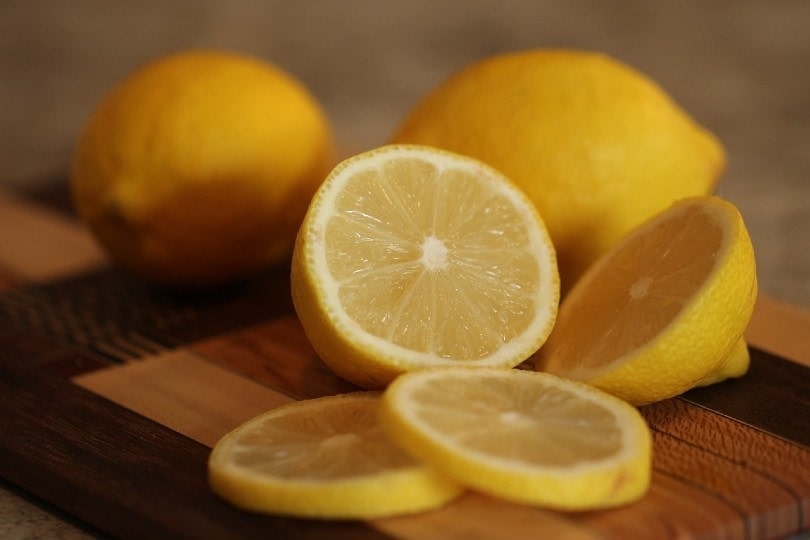
Not all fruits and vegetables are good for cats. Some are highly toxic and should never be in your cat’s diet, not even as small treats. As mentioned earlier, moderation is crucial even when feeding cats human food that is safe and non-toxic for them. But, some fruits are best left for you and your family only.
All felines have a specific nutritional requirement necessary for their growth and development. It’s best to feed your cats complete and balanced cat food that helps them achieve this goal.
The trick for better health and wellness is to know which fruits/veggies are best for human consumption only. While fruits can be a great source of vitamins and minerals, the ones listed below are quite harmful to your feline friends.
- Limes
- Oranges
- Lemons
- Grapefruits
- Coconut (flesh, milk, and water)
The first four are all citrus fruits that contain high citric acid levels, psoralens, and essential oils. These compounds may cause your cat numerous health problems. Avoid giving your cat the juice and even the peels, stem, and leaves. A cat that eats a small part of those citrus fruits will experience an upset stomach with depression, vomiting, and diarrhea, while skin issues are also possible.
The fifth fruit is coconut. Never feed your cat any water, milk or coconut flesh. Cats tend to experience digestive issues when they consume these parts of the coconut fruit. It’s because coconut water contains oils and potassium which can harm your feline friend if they ingest too much.
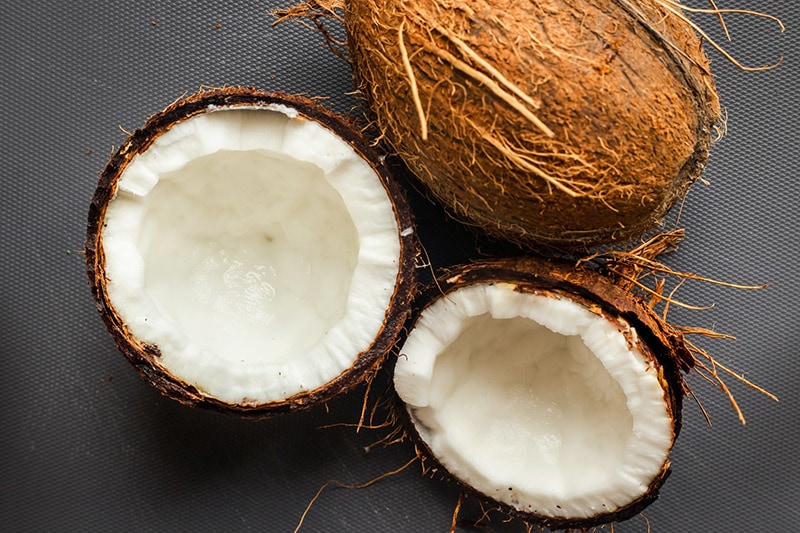
It’s not only fruits that can be harmful to cats. Even some vegetables and herbs can cause some health problems. Cats should never eat vegetables and herbs like:
- Garlic
- Onions
- Scallions
- Leeks
- Shallots
- Chives
These vegetables cause serious health problems for cats, like gastrointestinal complications. They even cause harm to the red blood cells, leading to anemia that manifests as weakness, pale gums, and trouble breathing. Therefore, avoid feeding cats these vegetables and herbs or any other meal prepared with any of them.
If you can, avoid feeding cats human food, as there are safe and nutritious cat treats you can use instead. But, if you can’t resist those lovely eyes, it’s best to know which foods are good and which aren’t.
Above are some human veggies and fruits not good for cats. Others to add to the list are as follows:
1. Alcohol
It goes without saying that no pet, including cats, should consume alcohol. Alcohol can cause serious health issues for your feline friend, including brain, kidney, heart, and liver damage, leading to breathing difficulties and neurological signs such as tremors, seizures, coma, and death.
2. Raisins
As sweet as raisins can sound, keep them far away from your cat. Raisins, even in small amounts, can cause kidney failure.
3. Chocolate
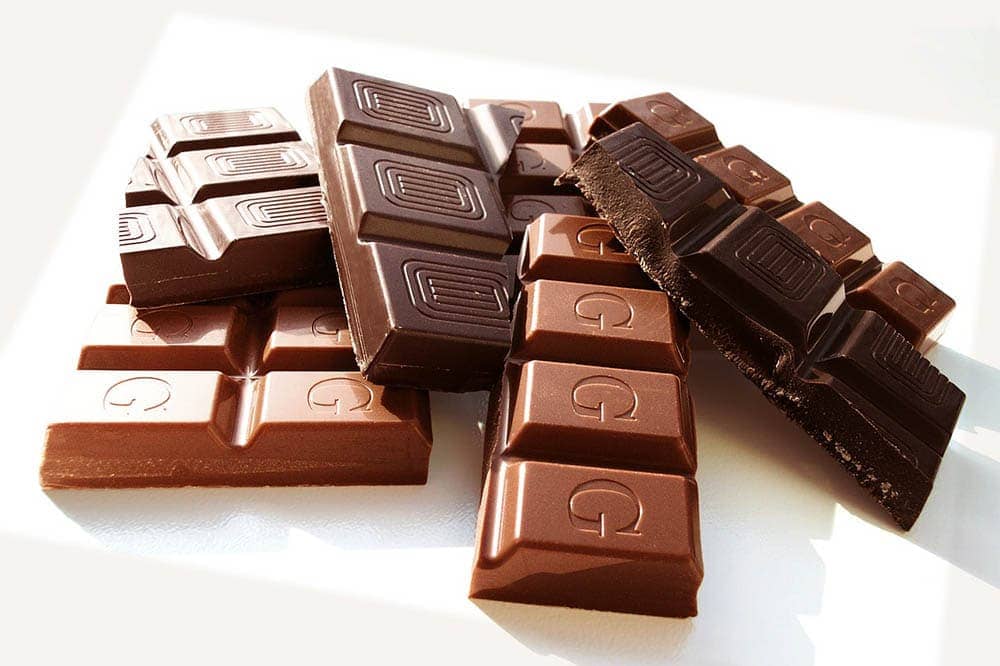
Yes, chocolate is quite delicious and a fantastic treat, but only for humans. Chocolate has theobromine and caffeine as part of its ingredients. These are highly toxic to pets like cats and can lead to death.
4. Xylitol
Alternative sweeteners are quite popular today. However, sweeteners like Xylitol aren’t good for cats since it may cause their blood sugar levels to drop. There is some research that suggests cats may not be as prone to xylitol toxicity as dogs are, but we believe it’s best to be avoided and to be safe rather than sorry.
5. Cheese
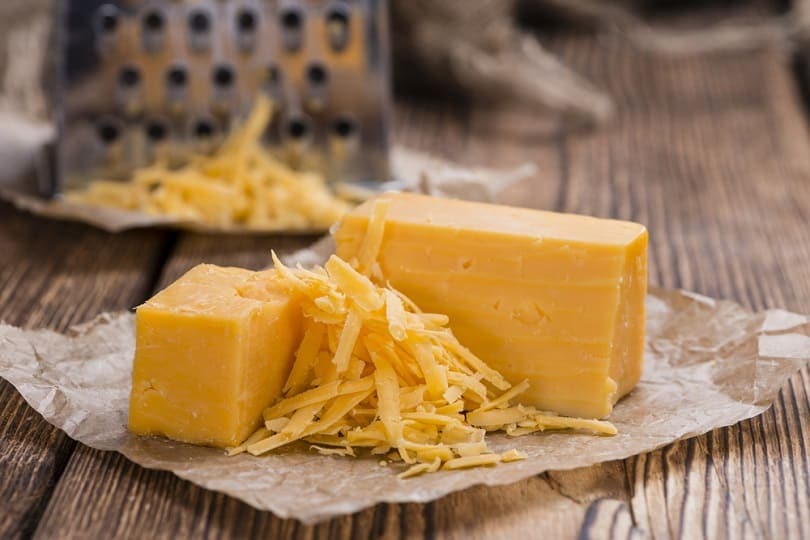
Cheese isn’t good for cats. This dairy product that you love so much can end up causing them vomiting and diarrhea, as most cats are lactose intolerant.
Final Thoughts
Cucumbers are quite beneficial vegetables to have on your plate as they contain loads of water, vitamins, and minerals. However, always ensure you feed your cat cucumber slices in moderation.
Normally, human food is best left for humans, but some fruits and veggies like cucumbers are safe for cats too. However, always make sure these are fresh and not pickled.
Related reads:
Featured Image Credit: tugol, Shutterstock





